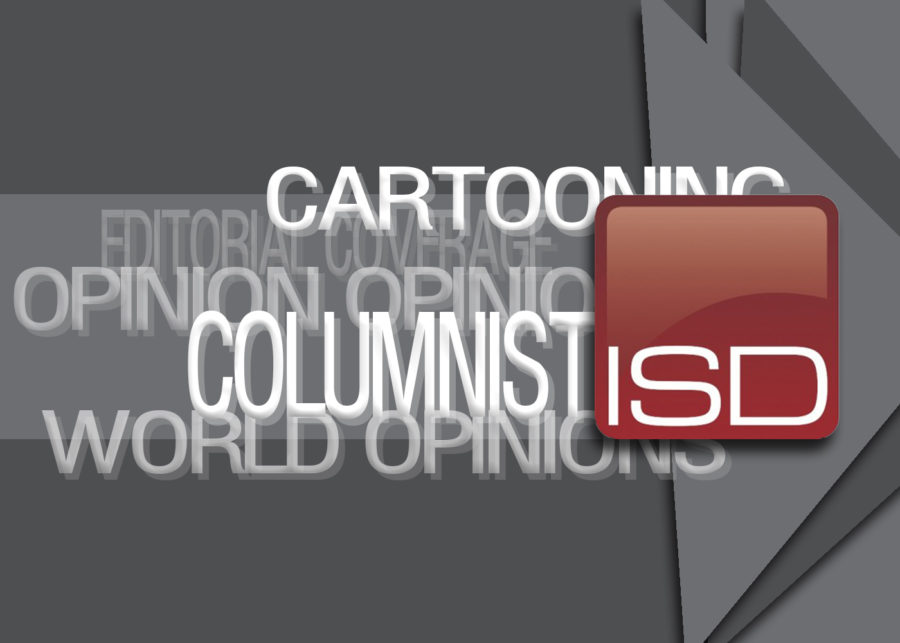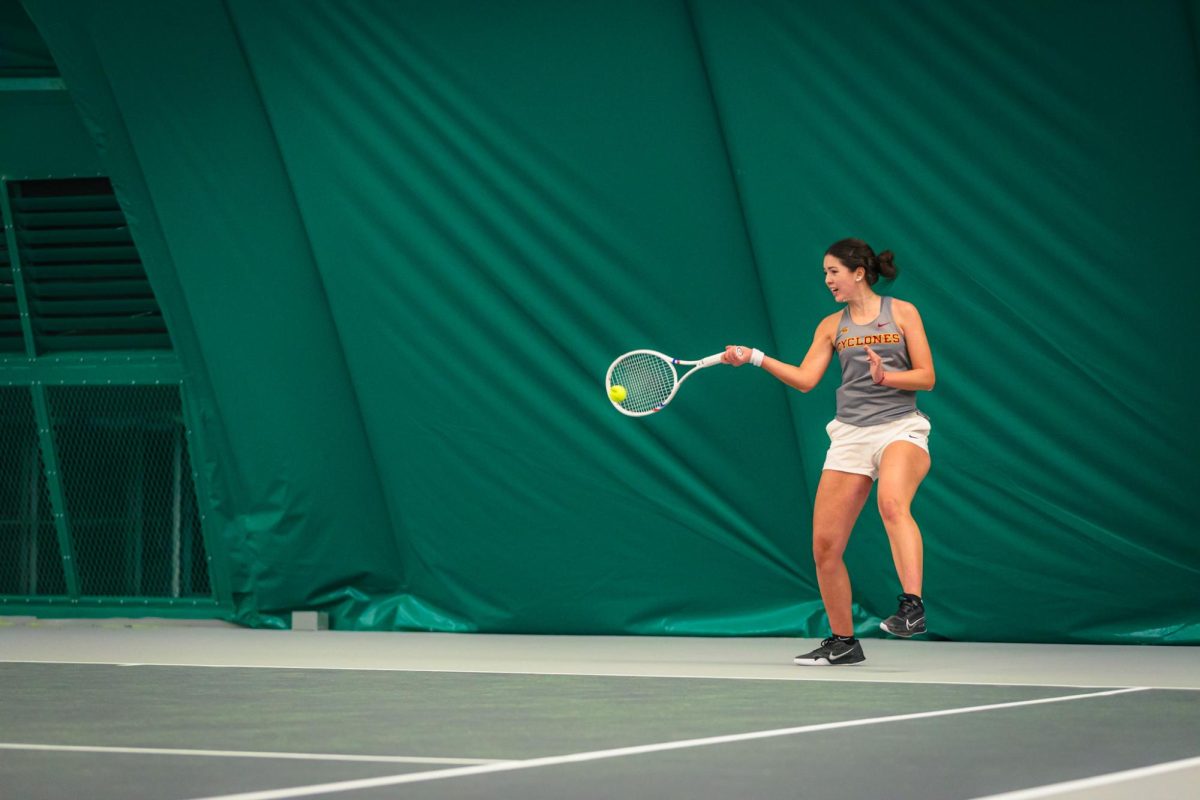Glawe: In defense of language
April 22, 2015
Thoughts of graduating in two weeks have infused within me a sense of utter dread as I confront retirement from the Daily and, more so, the usurpation of my voice. Time is the fatal harbinger announcing, once and for all, silence. But before I pen a solemn “Goodbye” to my very few readers, I must thrust upon the Cyclone Nation one final opinion.
Writing is a way of breathing — it is certainly necessary for my own survival. The highest of all writing is poetry, and poetry is the highest of all arts. As Percy Shelley put it, poetry is the way of apprehending the inapprehensible. We are all, in a way, poets. Shelley, from whom I feel the constant anxiety of influence, says poets are “those who imagine and express the indestructible order,” under which not only fall the painters, architects and musicians, but also “the institutors of laws, the founders of civil society and the inventors of the arts of life.”
Saliently, poetry is the foundation of language. At the onset of any language, all authors are necessarily poets, culling the inapprehensible and routing it forth into apprehension. The expression of poetry — Shelley suggests a Greek drama — is like a prism, absorbing white light and scattering it into its constituent parts. Poetry is the creation of language.
Shelley eerily proclaims that if this ideal were forgotten, if no new poets “should arise to create afresh the associations which have been thus disorganized,” then language would be “dead to all the nobler purposes of human intercourse.” I fear in some respects we’ve arrived at that declination.
Changing social conditions, highlighted by the demand for all writing to be equal or subservient to the reader, has fused the art of language into a sort of emulsion of communality where expedience destroys eloquence. Simply put, poetry, the supreme essence of language, faces complete desolation if we remain content with expressing ourselves frivolously.
Poetry, the art from which all else descends, faces an endless army of politicizers and good spellers forcing its subservience to the relevant cause. As a writer, as one of Shelley’s poets, I was often chided for expressing a sort of loftiness and further berated for my use of words like “serendipity” and “unctuous.” I am told that my readers are dumber than the language I employ, and that my words must stoop to their level.
I find this insulting for the intelligence of both the reader and myself, but even more, the demand to capitulate loftiness, transcendence and sublimity in writing is the wish to give up everything pure and beautiful in our language. It flies in the face of Shelley, Shakespeare, Whitman, Wordsworth and so many others. An endless consciousness composed of the greatest poets cries out against the torments of our time.
Every day, our language suffers capitulation to political correctness, breeziness and blandness. I wrote at the beginning of the semester that the advent of personal computers and the Internet has spawned forth monsters: blogs for the unpalatable — and sometimes unreadable — flimsy arguments propped by unreliable evidence and violent crusaders commenting on each and every publication in an endless rabble.
This is the current state of reading and writing. Too many writers conform their art into the servitude of the rabble and too many readers demand the compression of ideas into simplicity. We forget what Shelley remarked so long ago, that the function of the Sublime — “excellence in language” — was to persuade us to abandon easier for more difficult pleasures. To repeat what Harold Bloom says of the richness in Shakespeare’s characters — Falstaff, Hamlet, etc. — the Sublime is meant to expand our consciousness without distorting it. To meditate upon Falstaff and Hamlet is to “apprehend greatness — negative and positive — and so share in the potential for greatness in ourselves.”
If I fight for anything, it is for language, and the fact is our language has been treated poorly. We have left language to die. In our current state, with websites springing forth limitless capacity to excite, entertain and spur on hysteria, I doubt we remain, as Bloom mused, “coherent enough for imaginative comprehension.” If greatness were presented before us now in the form of Dante or Shakespeare, it is unlikely we would recognize it. That sort of language has been muted — glazed over by the impatient and social reader. Solitary reading, reading where one ultimately confronts herself, is lost to antiquity.
I am a romantic myself, and I’d love to carry on believing I am the true descendent of Shelley, Browning and Yeats, but perhaps my time has been appropriated. Maybe poetry is dead, and perhaps I have been rendered obsolete. Quite possibly, I dare contemplate: I am participating in my own demise.







